05/12/2021
How to check if a car is stolen in the UK
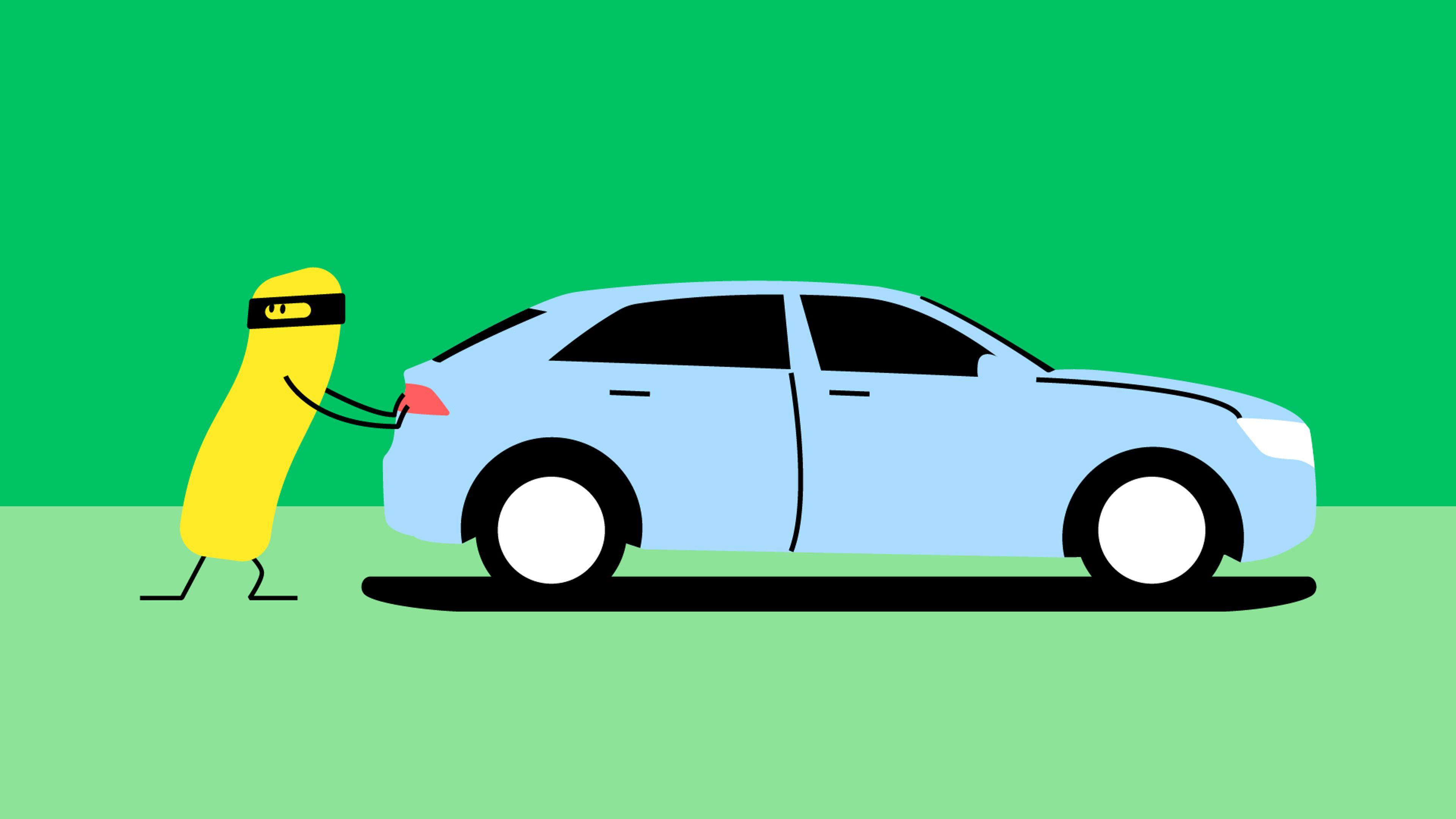
Criminals often disassemble stolen cars and sell their parts, as it’s an easy way to profit without getting caught. However, not all stolen vehicles are dealt with this way.
In the UK, purchasing a stolen vehicle can lead to legal complications, financial losses, and even the risk of having the car seized by the authorities. So, how to perform a stolen car check and avoid potential issues with law enforcement?

Try our VIN Decoder!
To learn more about any used car, check its VIN on our VIN Decoder page!
3 simple ways to check if a car is stolen
No one will pat you on the back after buying a stolen vehicle. Someone is likely still looking for it, and either you or the person who sold it to you will ultimately pay the price.
Thankfully, checking whether a car is stolen doesn’t require special connections or knowledge. Here are 3 things you can do to avoid such unforgiving situations.
1. Use carVertical to check stolen car databases

Enter a car's registration mark or VIN into our app or website and get a vehicle history report, which can show if a car has been reported as stolen. carVertical has access to various automotive data, including police stolen vehicle databases, state registries, and insurance companies. Even if a car was snatched abroad, this information will be displayed in the report (if the data is available).
If carVertical identifies a stolen vehicle, a warning message will appear under the “Theft” section of the report. It will show whether a vehicle has been recovered since or is currently wanted as stolen. You will also be able to see where and when the theft was registered.

2. Inspect the condition of VIN plates
Since getting a car history report is one of the ways to check if a car is stolen, thieves will often illegally replace VIN plates on a vehicle. This unties a car from the “stolen” record, and some institutions may even find it legal afterwards.
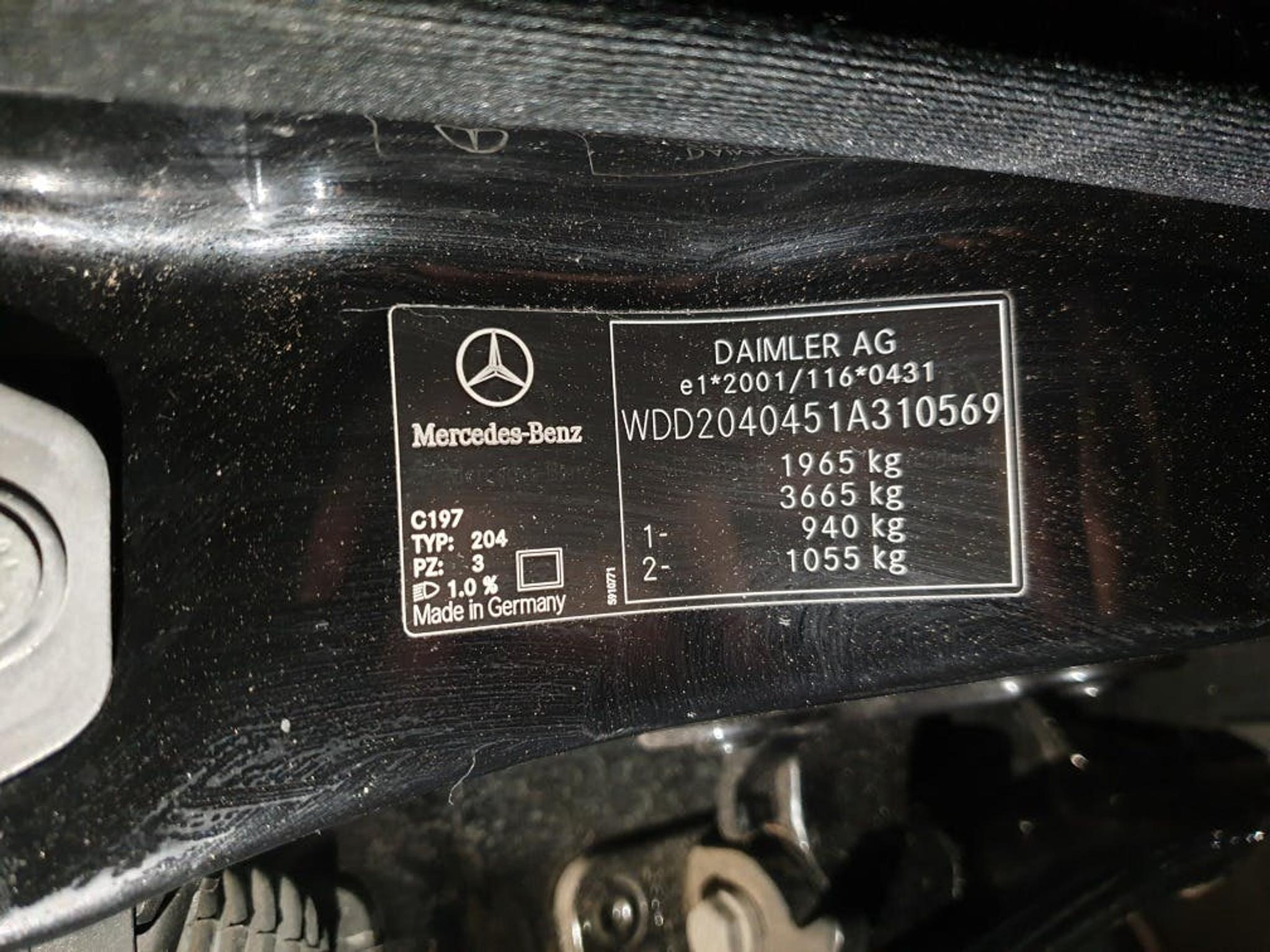
If you suspect that the car might have been stolen but no theft record is available, check the “Specifications” section of the carVertical report to verify the car’s details. If general vehicle information doesn’t match the reality, consider it a red flag. Such discrepancies may indicate possible VIN tampering or theft, and should prompt further investigation.
Tampered VIN plates are pretty easy to identify if you know how they looked originally.
Car manufacturers use different types of fasteners – rivets, welding lines, and welding spots. A VIN plate shouldn’t be cut or damaged, and all characters should be clearly visible.
If you’ve noticed that your friend’s Honda Accord has a VIN plate that’s fixed by rivets, this should be true in other Accords of the same age as well.
3. Ensure VINs match across the vehicle
VIN numbers are usually placed in a few common locations on a car:
- Behind the front windshield (on the dashboard)
- Under the hood
- Inside the driver’s side door pillar
- Front end of frame (older cars)
- Documents
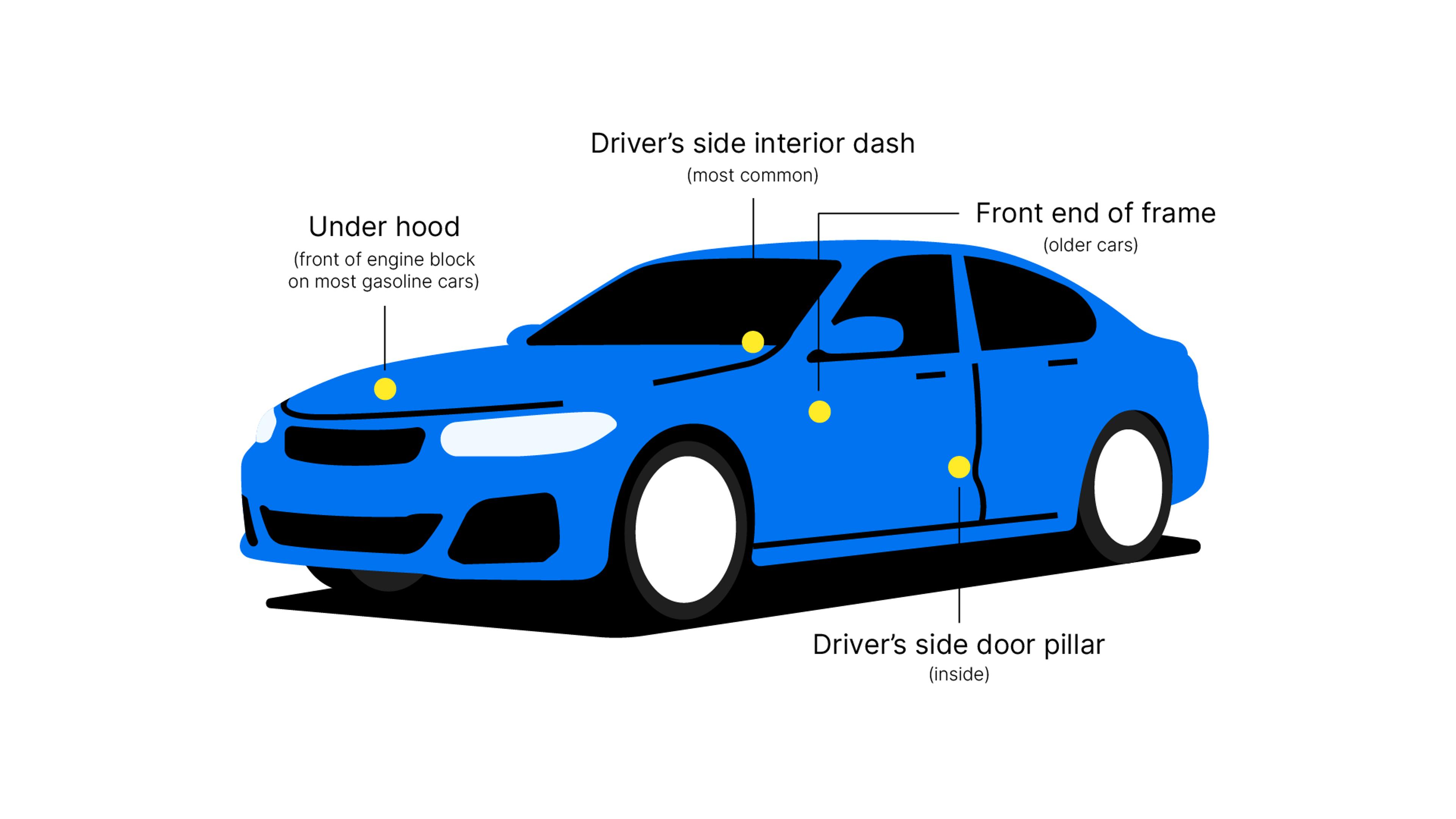
Take your time to gather all these numbers and compare them with each other, as well as with the ones on the insurance certificate and vehicle registration. If you’ve found different VINs, this may be a stolen car and not worth the price.
In this case, you should inform the police as soon as possible! Even if a car is not stolen, tampering with a VIN code is considered fraud in most places.
How do people get away with selling a stolen vehicle?
Despite the risks, some individuals sell stolen vehicles to make quick money. How is that even possible, you might wonder?
Careless buyers
Checking VIN codes still isn’t the norm in the used vehicle market. That means sellers can (and often do) find buyers for stolen cars and motorcycles. If you don’t check a VIN when buying a used car, your chances of detecting a scam fall dramatically.
Fake or altered VIN codes
Have you seen those burnt-to-the-ground cars that are still being sold for thousands of euros? These cars are literally destroyed, and there’s no point in restoring them. Yet, some folks still bid large sums of money on them.
Why?
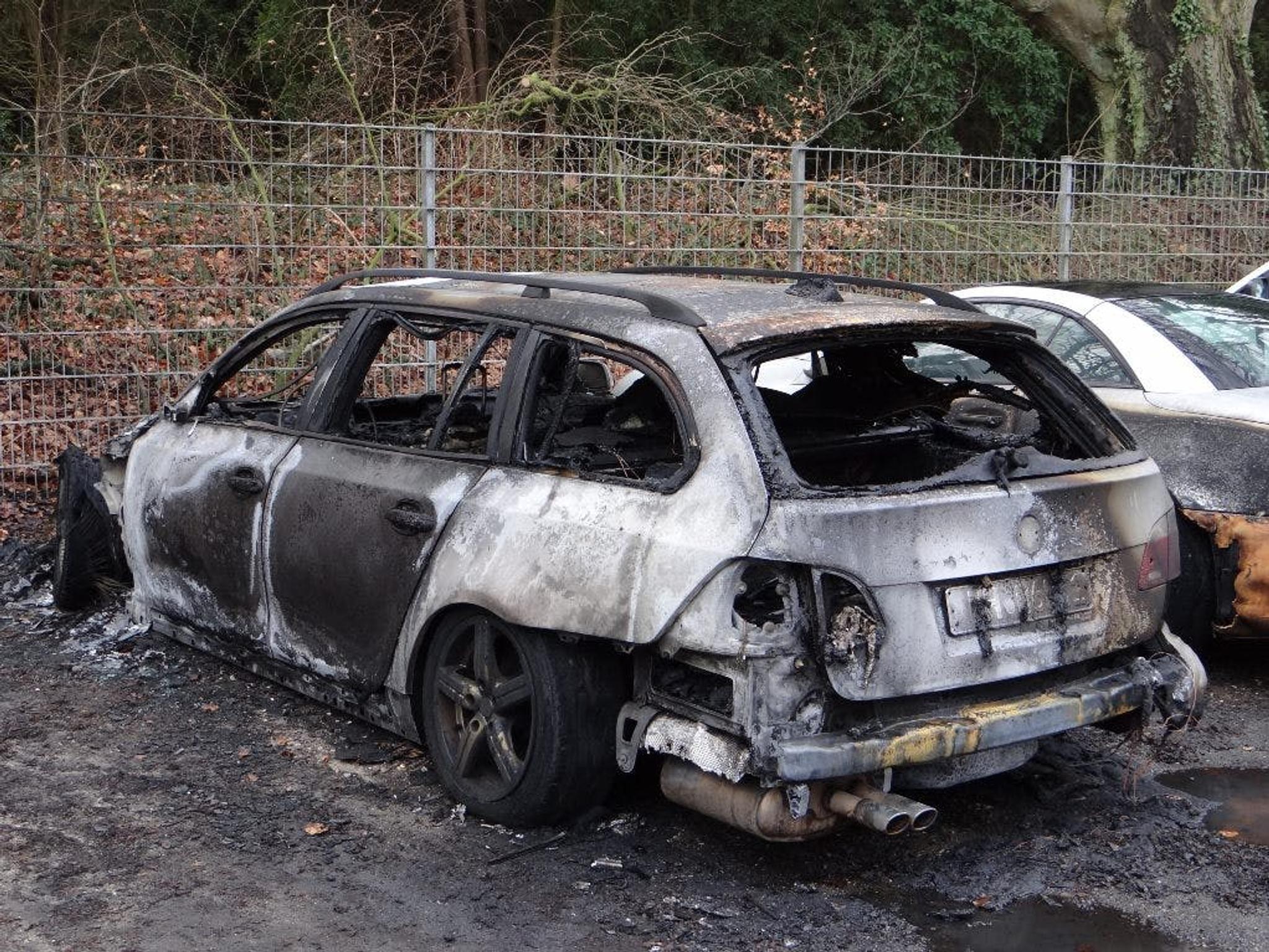
Well, many of these bidders are fighting for VIN plates only. They may be planning on stealing a car soon, and now they need a legitimate VIN plate of the same model to lose the “stolen” title.
While many such criminals get caught quickly, some cars shift from “stolen” to “clean” in a matter of hours.
Scrapping for parts
Other thieves just do the simple thing and scrap cars for parts. A huge proportion of used car parts are taken from stolen cars due to shady businesses known as chop shops. Some drivers even install tracking chips into the expensive bits, like headlights and media players.
While avoiding buying parts from a chop shop can be more difficult, it’s much easier to check if a vehicle is stolen before buying it. You should be completely fine as long as you don’t skip a VIN check.
What information can you find in a history report and how can you use it?
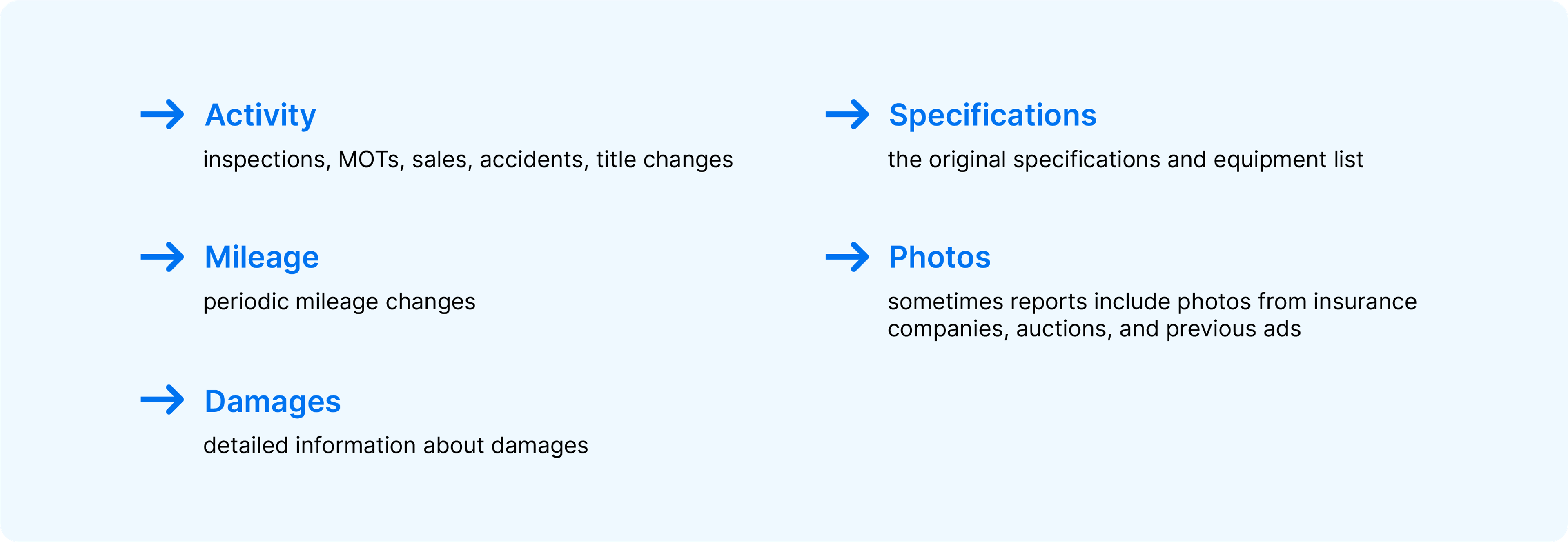
Besides a stolen car check, there are other reasons to get a vehicle history report.
Vehicle history reports generally contain information that’s crucial to know (but not always disclosed) before buying a used car, including:
- Activity – registrations, MOTs, ownership changes, etc.
- Mileage – periodic mileage changes
- Damages – detailed information about damages
- Financial and legal status – details about any financial or legal issues associated with the vehicle
- Specifications – the original specifications and equipment list
- Photos – sometimes reports include photos from insurance companies, auctions, and previous ads
This information can be extremely useful when negotiating with any used car seller. At worst, a history report will ease your mind before making a purchase. At best, it will help you get a much better price or dodge a complete scam. Check our sample report to learn more about its features.

Check your registration number
Avoid costly problems by checking a vehicle's history. Get a report instantly!
A “stolen” title isn’t as common as mileage fraud or past accidents, but it carries more risk for a buyer. For example, you can even end up in jail after buying a stolen car. Oh, sure, you didn’t know it was stolen – certainly no one’s ever said that before!
